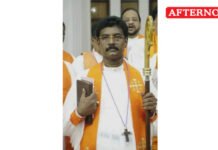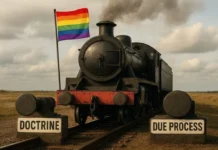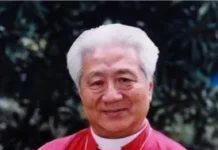At least 49 people have been killed and 27 were abducted in attacks by armed assailants of Fulani ethnicity on communities in three Local Government Areas (LGAs) of Kaduna state, central Nigeria, that occurred on 26 and 27 September.
Eight people were killed, six were injured and several houses were burnt in an attack on Kacecere village in Zangon Kataf LGA, southern Kaduna, on 27 September.
One person died, an unknown number were injured and 27 were abducted following an attack on the Gabachuwa community in Kachia LGA, southern Kaduna, on 26 September. The victim was killed while on his way to visit the Gabachuwa community, when he encountered the assailants as they led their captives away. According to CSW’s sources, the victim and most of the abductees are members of the Evangelical Church Winning All (ECWA).
Also on 26 September, militia men attacked the Madamai and Abun communities in the Malagun District of Kaura LGA at around 6pm, killing 40 people and injuring eight in a “well coordinated attack.” A Catholic priest who witnessed it described the two hour attack as “a massacre against the natives.” The assailants reportedly arrived in significant numbers, and initially targeted people known to coordinate security for the community, and their families, before murdering other victims and burning down 20 homes. The victims reportedly included 13 people from the same family.
Senator Danjuma La’ah, who represents Kaduna South in the National Assembly, condemned the relentless violence in southern Kaduna and insisted on the victims receiving a fitting burial, donating over N1 Million (approximately GBP £1780) for the purchase of caskets and preparation of the bodies. He also called for increased security, adding that if the authorities fail to take proactive measures to address the issue, the people will be left with no option except self-defence.
The spokesperson for the Southern Kaduna Peoples Union (SOKAPU), Luka Binniyat, also called for increased security, adding that SOKAPU “strongly condemns the lack of seriousness by the Commander, Operation Safe Haven, Maj. Gen. Ibrahim Sallau, who is also the GOC, 3 Division, Nigerian Army Jos… […] As of now, the most protected areas of Southern Kaduna are the Hausa and Fulani settler communities. They’ve [sic] heavy presence of Operation Safe Haven, police and related security agencies. We are therefore calling on the Nigerian Army to look into this allegation and do the needful. We’re also calling on our youths to remain vigilant, defend their communities, cooperate with security agencies and never take the law into their hands.”
Kaduna state is currently an epicentre of kidnapping and banditry activity. The predominantly Christian ethnic minority tribes who inhabit the southern part of the state have experienced relentless attacks since 2011, with a significant uptick following the advent of the current administration in 2015. The state continues to experience alarming levels of violence despite being the headquarters of 11 military installations. As one CSW source lamented: “Most communities in southern Kaduna, including some in Birnin Gwari and Igabi, have more mass graves than government projects.”
Following the attacks, the Kaduna state Commissioner for Internal Security and Home Affairs asserted that troops were sent to the area and also came under fire, but forced the assailants to retreat before allegedly rescuing six people from burning buildings and dousing three fires. However, local sources questioned the delayed response, since the assailants had allegedly notified villagers in advance that they would be launching an attack. The Commissioner also claimed the people in Kacecere village died in a reprisal attack.
CSW’s Founder President Mervyn Thomas said: “Once again our hearts break for the people of southern Kaduna who continue to face relentless violence on a near daily basis. We extend our deepest condolences to all those who lost loved ones in these attacks, and pray for the swift return of all abductees. The state and federal governments must do far more to protect all vulnerable communities in an unbiased manner, and to combat the threats posed by Fulani militia and other armed non-state actors. This is also not the first time allegations have been made of inadequate protection despite warnings of an impending attack. This is concerning, and must be investigated by the Nigerian government, and failing that, by the wider international community.”



